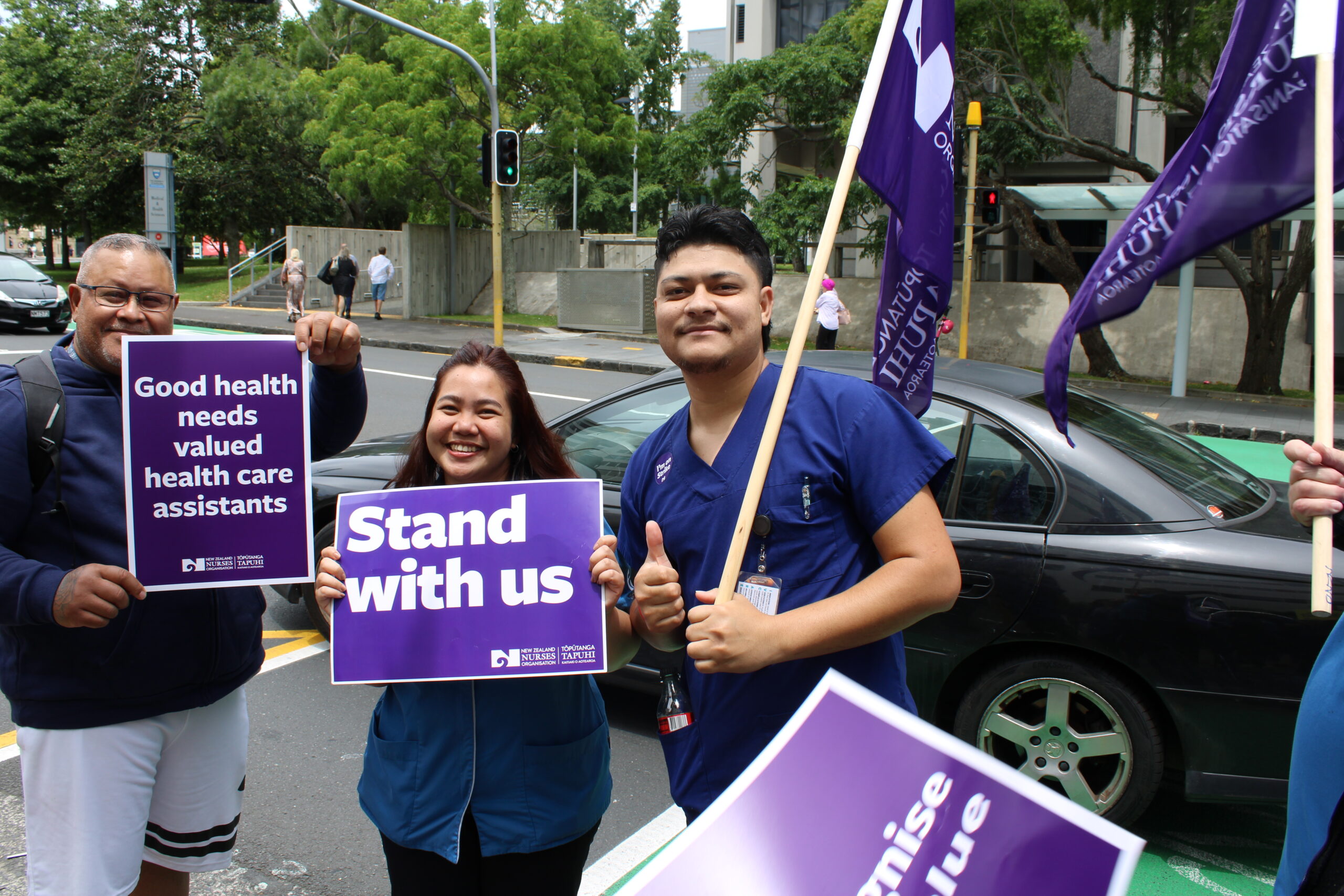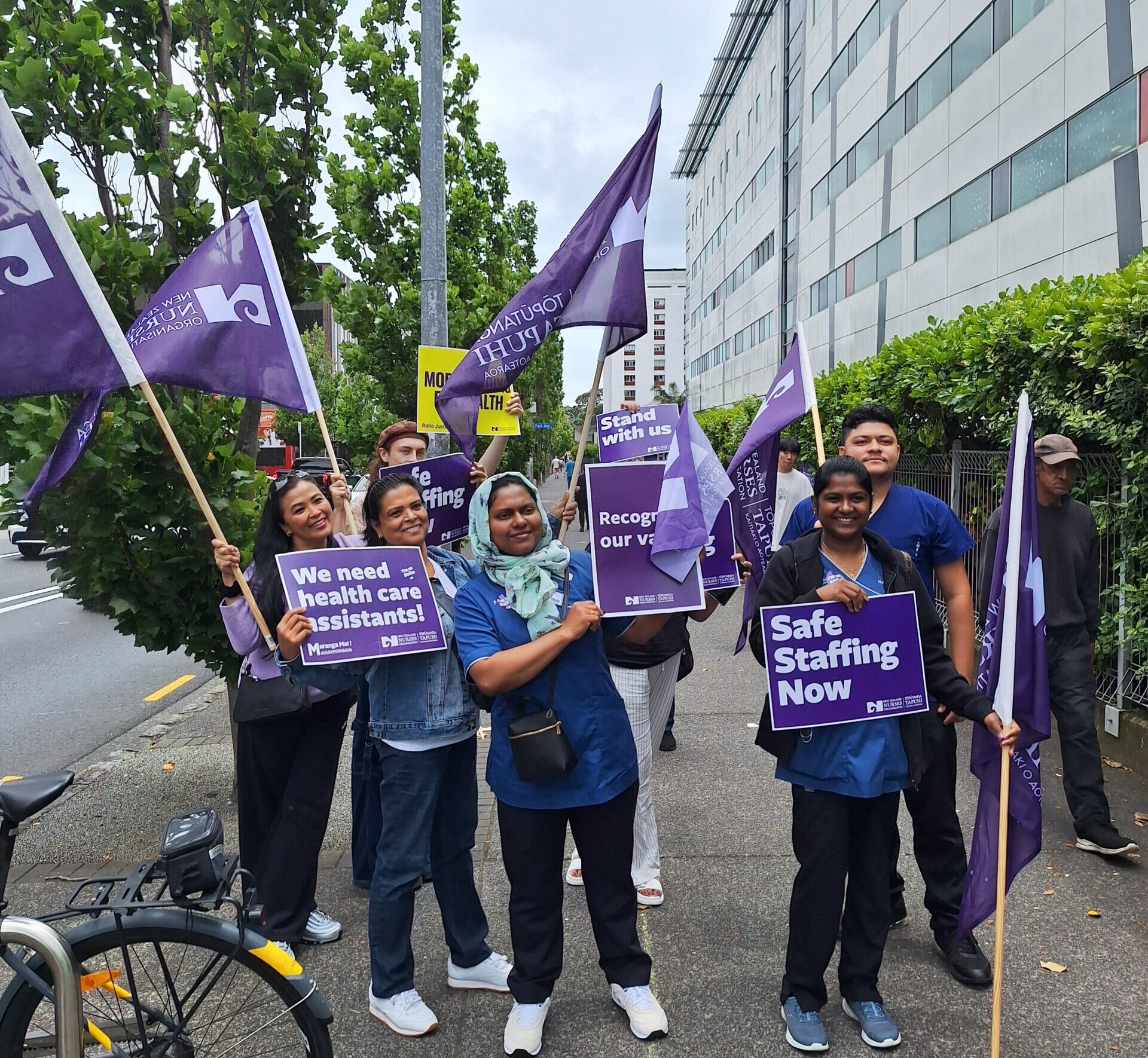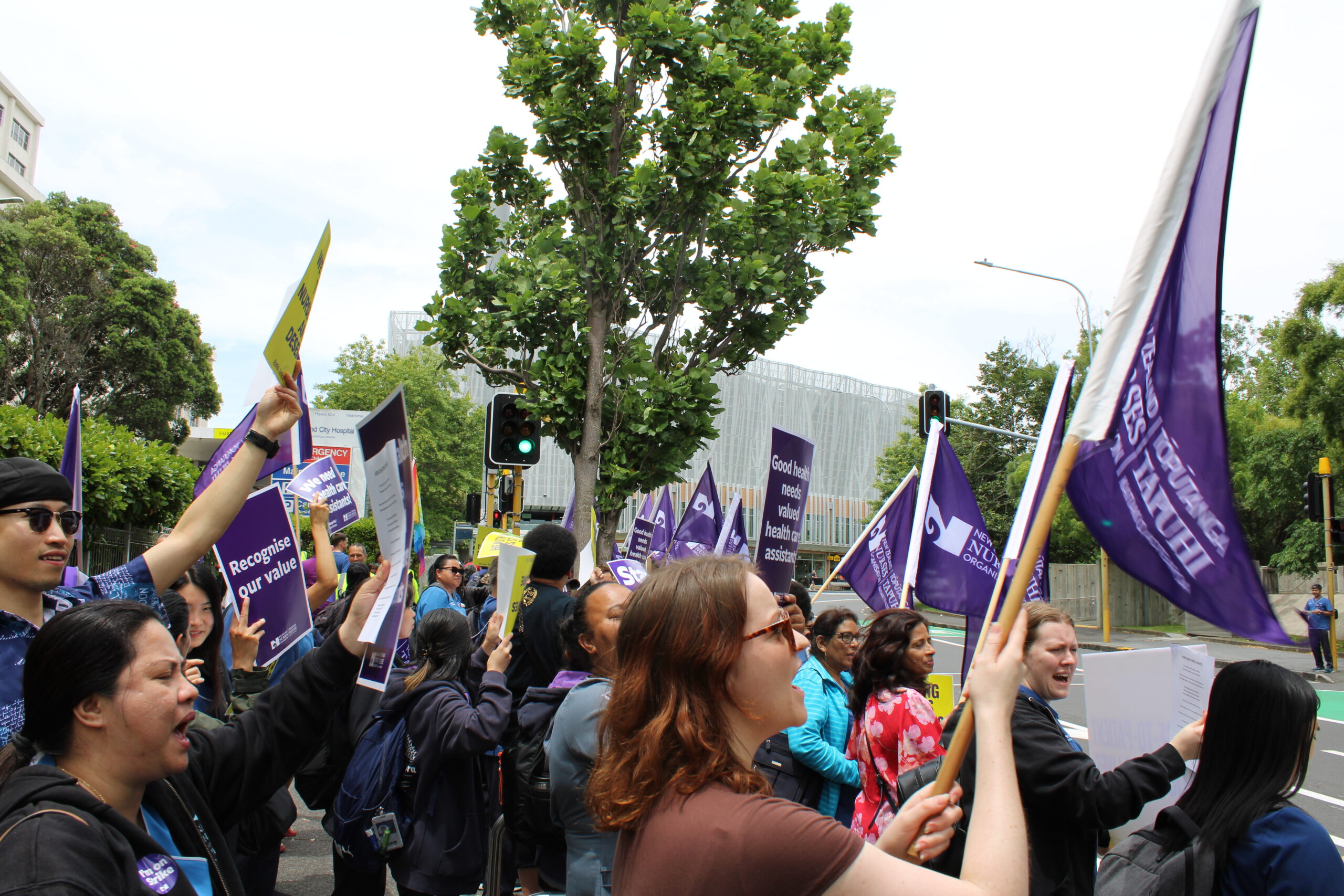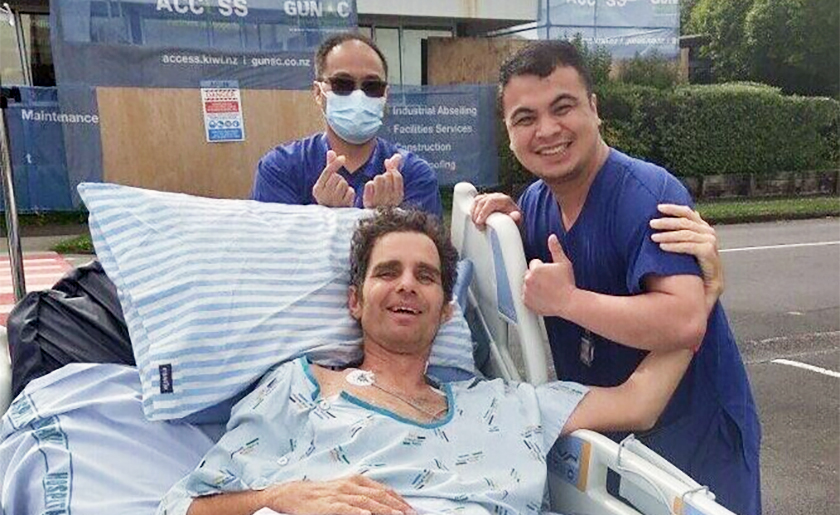I have never been involved in a strike, and usually take boring apolitical positions on things like health-care workers’ industrial action.
And while I was not well enough to get to the picket lines outside North Shore Hospital this week, I was there in spirit, and this is why:
Last Monday, December 5, was day five for me. Day zero was the previous Thursday at roughly 2pm, when I was woken up attached to a machine that had been giving me life support for 10 days.
I had hoped to join the picket lines this week when the Auckland nurses and kaiāwhina went on strike, but I was still in the HDU with an IV line in.
About a week earlier, I had spent a day in bed feeling sorry for myself thinking I had man flu.
I called Healthline and spoke to a lovely nurse, who asked me about my symptoms and then told me I needed to see a doctor within two hours.
She told me the location of the nearest after-hours and checked that I had someone who could take me there. When I got to the after-hours, a kind and professional nurse screened me and found that my blood pressure was dangerously low.
She immediately got the doctor who put in an intravenous (IV) line, spoke to the medics at Waitakere Hospital emergency department (ED), then put me in an ambulance and sent me off — I think I was only at the after-hours for 10 minutes!
I arrived at Waitakere ED to find a well-running system, with nurses and doctors working well together.
At the ICU I had a critical care nurse allocated to me full-time, 24/7. Every one of them was technically highly trained but also a compassionate and humane caregiver.
Before I even arrived, they were preparing a range of antibiotics to give me.
They very quickly determined that I needed intensive care, which was at North Shore Hospital. I was accompanied in the ambulance by the doctor and nurse, and had the quickest trip down Lincoln Road on a Sunday afternoon that is humanly possible!
I arrived at North Shore to find the intensive care doctors and nurses ready and waiting. They had already reviewed my bloods from Waitakere ED, taken less than two hours earlier.

They told me in a kind but clear way that I had severe sepsis, which was my body over-reacting to an infection they believed was in my blood. My kidneys and metabolism had already shut down, and my circulatory system wasn’t far behind.
Being a youthful and fit father of three young kids and husband of one equally-fit and even-more-active wife, what I heard was: “You’re really sick, but we are pumping you full of antibiotics and once those kick in you’ll be right.”
Around now, my story falls into a long blank. I was unconscious, with various kidney and breathing machines keeping me alive.
This aligned with my life experience of health so far, which was: Be fit and healthy, and if you get sick, go to the doctor to get some medicine and you’ll be right.
At the ICU I had a critical care nurse allocated to me full-time, 24/7. Every one of them was technically highly trained but also a compassionate and humane caregiver.
Over the first night staying at ICU, my body decided to “cut off” my extremities — leaving my fingers freezing and abandoning my feet altogether.
Around now, my story falls into a long blank. I was unconscious, with various kidney and breathing machines keeping me alive.
At the same time my wife and parents were being supported by an array of registrars, senior specialists, and professional nurses — all while trying to also “keep things normal” for the kids.
Then my day zero arrives, with Metallica’s ‘Enter Sandman’ blasting full noise, pulling me back into the conscious world.
It was at this point my family experienced the strength in our Te Atatu Peninsula community.
Some of the doctors and nurses went beyond simple care, and took a personal interest and responsibility — even calling my wife with updates and good news.

Then my day zero arrives, with Metallica’s Enter Sandman blasting full noise, pulling me back into the conscious world. (Best song choice for this occasion, in my opinion!)
My days zero to three were a challenging journey for me to reflect on and share.
The best care was from the nurses who knew you needed someone to hold your hand.
Having been on a respirator, I needed to learn to breathe again, which I found a dark and scary process. The best care was from the nurses who knew you needed someone to hold your hand. Or the nurses who knew how important it was for my family to be by my side. I was bed-ridden, with feet that couldn’t take any weight, and looked like they were from a failed Everest expedition.
My day four started in the high-dependency unit (HDU) after I was moved over to free up an ICU room. I started the day by convincing the doctor to take out the tubes into my stomach that had been feeding me, as well as a number of of other tubes and lines connecting me to various machines.
I also had a visit from a physiotherapist and while this was successful, it crushed me at the same time. I sat up using my own power (with their support) but I had no balance, with the entire room spinning around me.
I felt fed up with my situation and the extent of the rehabilitation I needed was really sinking in.
A while later, after some rest, two of the nurses took me (on my bed) for a tiki tour of the hospital, including going outside and sitting by the lake. This was the first time I had been outside in two weeks.
Then again today, two nurses arranged for my bed to be taken outside for an hour so that I could see my children for the first time since being admitted — they are too young for ICU/HDU age limits.
‘There is no one caregiver, nurse or doctor who saved me. The North Shore and Waitakere hospitals operated as a perfect system of care, medicine and compassion.’
So safe care is not just staffing ratios and efficient teams. We need to recognise that it is about meeting the cultural, emotional, and spiritual needs of patients and whānau. It’s about knowing that healing isn’t just a physical process, but a holistic process — and that sometimes the best thing a patient can experience is someone simply rolling their bed out into the sunshine for 15 minutes.
There is no one caregiver, nurse or doctor who saved me. The North Shore and Waitakere hospitals operated as a perfect system of care, medicine and compassion.
I had hoped to join the picket lines this week when the Auckland nurses and kaiāwhina went on strike, but I was still in the HDU with an IV line in.
But I want to publicly support the striking nurses, to acknowledge their hard work, challenging work environments and constant erosion of their ability to provide holistic care.





